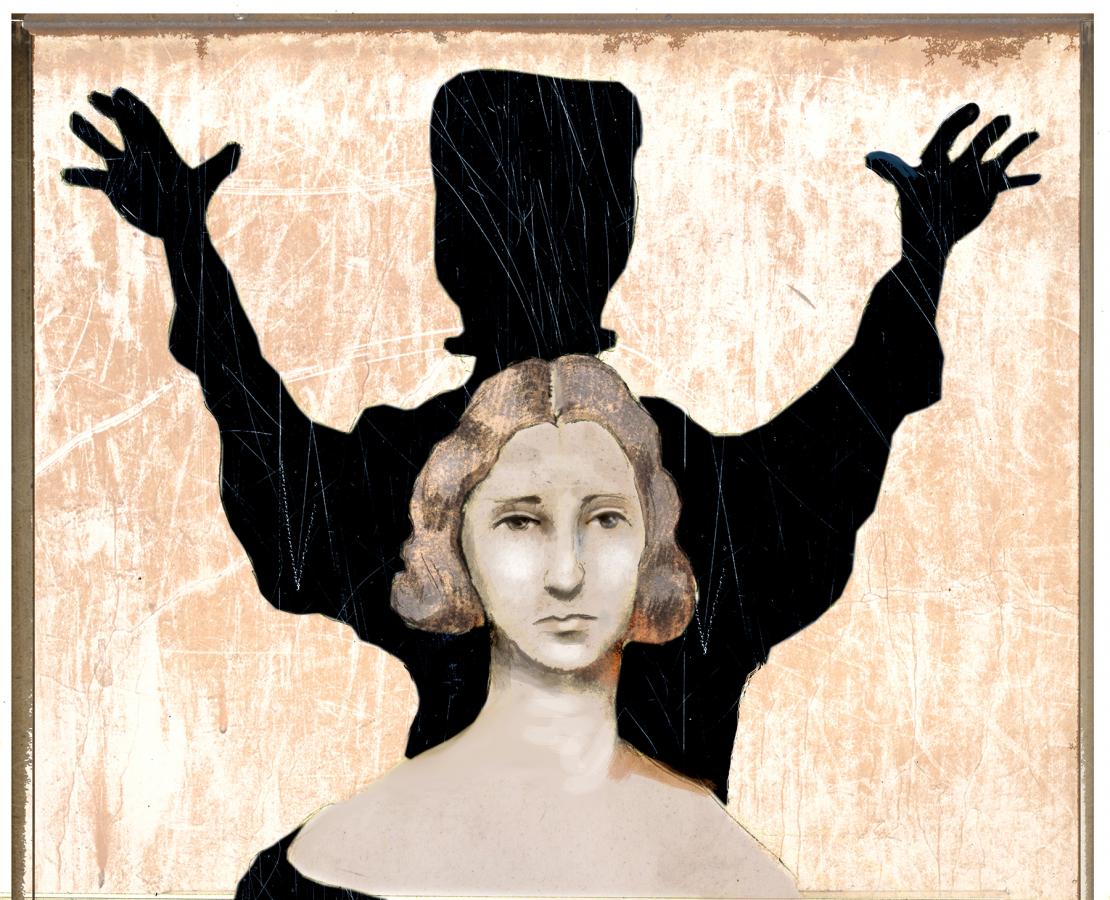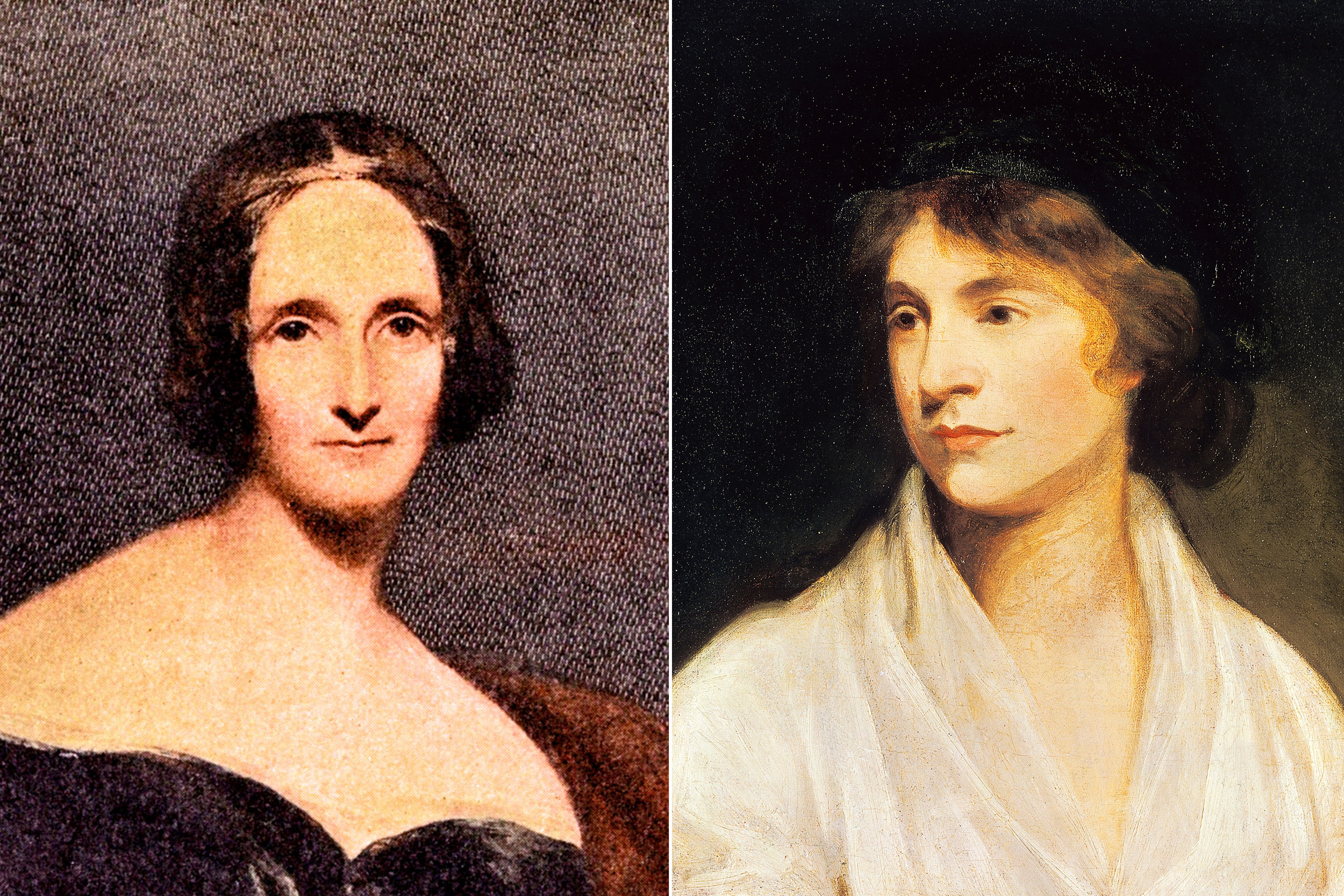Writing My Own Ending
illustration by Jon Williams
I talk about Frankenstein a lot. If you know me IRL, this isn’t news. I’ve been talking non-stop about Mary Shelley, The Creature, and her mother since November. I followed a rigorous “can I adapt a novel in two months and still work at my other jobs?” schedule, turning down anything that wasn’t work or Frankenstein (which, in itself, was also work) for the rest of 2018. I clocked 500 words a day on that project alone, not because I was inspired, but because I couldn’t afford not to. I wrote my ten thousandth word on a flight home from Christmas. I was absolutely no fun to be around.
Rewriting was way more fun.
It always is for me. I love the opportunity to rebuild a messy world, especially when I created that mess in the first place. The director who commissioned me asked for one thing: more. More pages, more characters, more justification for why we were here. More text from the original novel. More pages for the students to sink their teeth into. And creating more was easy. The play only ran 75 pages — I had nothing but room. And there were a couple of things I wanted to flesh out.
The deaths, for one.
It’s not giving anything away to say that there’s a ton of murder in Frankenstein. Some would say it’s the whole point of the novel, a cautionary tale for any man with a god complex. (It’s a shame we don’t make this required reading for adulthood. It really is.) But there’s nothing theatrical about kill and kill and kill with no regard. There’s nothing interesting there. So I elaborated on what Shelley gave me. I took her list of casualties — William Frankenstein, Justine Moritz, Henry Clerval — and gave each of them a reason to die. And then I added another (Alphonse Frankenstein, who in my version is a dangerous and terrifying man) and saved one of her women: Elizabeth Lavenza.
My original proposal, I put Elizabeth at the center.
And I was so proud of myself. “Ah hah!” I thought. “I’ll put the overlooked sister-fiancé a the center of the story. I’m so smart.” Listen, I am smart, but I submitted a proposal before I’d even started reading the novel. (And in every email to the director who’d commissioned me, I said that I “hadn’t yet finished” the novel.) This move? Not smart at all. But I was scared. And I was sure this opportunity would be taken away if I didn’t act quickly. So I did a dumb white boy thing. Moral of the story: I recovered. But I will never do that again.
Once my proposal was accepted, I started reading Mary Shelley’s masterpiece. I became obsessed with her introduction, with the origin story that prompted the novel, and with her relationship to her long-dead mother. I discovered Charlotte Gordon’s dual biography Romantic Outlaws: The Extraordinary Lives of Mary Wollstonecraft and Mary Shelley and the fact that Percy Bysshe Shelley made upwards of 5,000 changes to the novel. These were the stories I wanted to tell.
The play now centers on these two Marys.
It’s a deeply layered ghost story about one woman who’s haunted by her characters and another who’s haunted by the daughter she never knew. We still get all of the Frankenstein story, but more importantly we get love in all its complexities. And because Percy Bysshe made so many changes to his wife’s work, presumably before the 1818 edition and in anticipation of the 1823 edition, I wrote my own ending too. Elizabeth Lavenza gets to live. More importantly, she gets to escape. She gets to taste freedom in a world where she’d ordinarily have none. She gets to be ordinary.
The Creature isn’t the villain of my story. He wasn’t the villain of Mary Shelley’s story either. The Captain is gone — because fuck him. And we don’t ever make it to the North Pole. But we do make it deep into Mary Shelley’s mind. We do get to live there, even if it’s just for a little while.
I’m finishing my rewrite of Frankenstein this week and it’s, pardon the pun, a monster. It clocks in at 20,000 words — longer than any play I’ve ever written. And it already has interest from two high schools; I haven’t even started shopping it around yet. If you’re a high school theatre teacher — or you know a high school theatre teacher — please get in touch. This play is meaty. And I cannot wait to see what these teens do with it.

